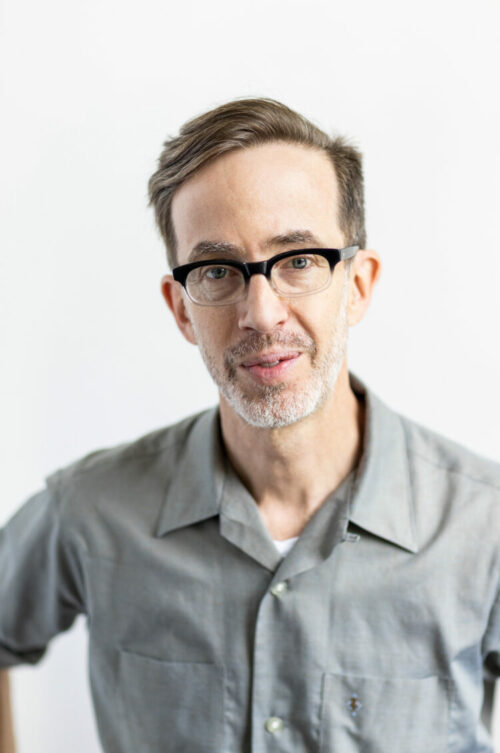WHO

Aaron Landsman is a New York-based playwright, performer, teacher and organizer. His awards include a Creative Capital Award, a Guggenheim Fellowship, an ASU Gammage Residency, and a Princeton Arts Fellowship. His current and recent theater works include: Night Keeper, which premiered at The Chocolate Factory Theater, and is being released as an album on the Hallow Ground label this March; the libretto for Follow, commissioned and premiered by Gaudeamus in The Netherlands, performed by Ensemble Klang, and presented at the Skirball Center in 2025; and All The Time in the World, a game-basd devised piece about collective self-regard and social media.
Landsman’s work has been presented in NYC, regionally and abroad. His 2022 work Trouble Hunters premiered in Novi Sad, Serbia, in collaboration with the collective Kulturanova. His one-on-one performance suite Appointment was presented by ASU Gammage. His 2016 diptych Empathy School/Love Story premiered at Abrons Arts Center, and was a New York Times Critic’s Pick. His 2012-14 project City Council Meeting, created with Mallory Catlett and Jim Findlay, was presented in five US cities.
Landsman also started and co-directs Perfect City, a 20-year multigenerational, multi-racial collective working on gentrification, city planning, urban design and safety for women and non-binary people. Perfect City is currently funded by Creatives Rebuild New York’s Artist Employment Program, and the NEA. Landsman’s earlier work was commissioned and produced by The Foundry Theatre, Free Theater Belarus and PS 122.
Landsman is the co-author of The City we Make Together with Mallory Catlett, published by The University of Iowa Press in 2022, as well as essays, stories and poems in several journals. From 2003-19, Landsman performed with Elevator Repair Service, and has appeared in projects by Richard Maxwell, Tim Etchells, Tory Vazquez and others. He is a Lecturer at Princeton and has taught at and guest lectured widely.
Artist Statement
I make performances and other artistic projects with people, language, space and time. I often start with questions: how does technology affect the ways we remember? How do we perform power in a democracy, and who gets to play which roles? Can the person who made you who you are, be the person who messed you up, be the person you forgive now?
I am currently obsessed with ways that the systems in which we are steeped are reflected in how we treat each other or behave. How are the power dynamics of a government meeting reflected at a family dinner table? How does the rhetoric of tour guide or teacher play out in other relationships, without us perhaps even knowing? My hope is that engaging these questions can allow us to see each other and how we are together more clearly. That is how form and politics intersect in my work.
I make form and content that meets what I see: a monologue with live music in low light that maps all our sleepless nights in the city; local government meeting transcripts rendered as theater, performed by the audience; a libretto about endless labor and the endless news feed; a cycle of poems in the form of a mix-tape; a 20-year working group about urban equity.
Some of my work iterates over time: one theatrical performance becomes a record album and the tours music venues; another becomes a book and then a community organizing toolkit; a walking tour becomes a ‘zine. I’m interested in how far an artistic process can lean toward repair, pedagogy or confession until it’s in danger of becoming something else. My work lives in this delicious, uncertain inflection point.